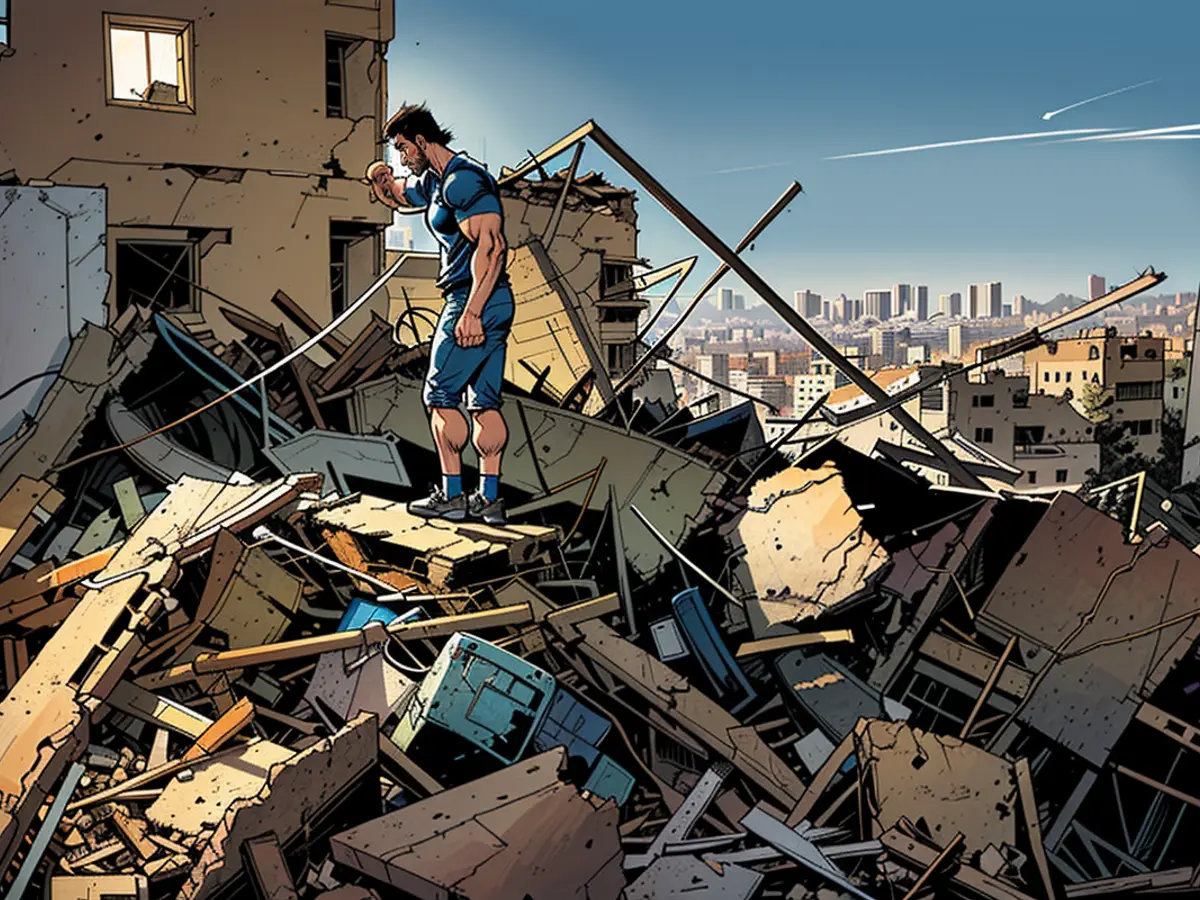Israeli army: Hezbollah commander 'taken out'
The Israeli military confirms: The strike in Beirut targeted Muhsin "Fuad" Shukr, the highest-ranking military commander of Hezbollah and the right-hand man of Hezbollah leader Sayyed Hassan Nasrallah, who was killed in the attack.
Israel has reportedly targeted a Hezbollah commander in Beirut, allegedly responsible for the shelling of the Golan Heights that resulted in 12 deaths over the weekend. The attack was aimed at the commander, "responsible for the murder of children in Majdal Shams and the killing of numerous Israeli civilians," according to an evening statement. The target was Muhsin "Fuad" Shukr, the head of Hezbollah's operations center, who was "neutralized" in the strike, according to Israeli military reports. Shukr was the highest-ranking military commander of Hezbollah and the right-hand man of Hezbollah leader Sayyed Hassan Nasrallah, Israeli forces reported.
However, Lebanese sources claim Shukr was severely injured. Lebanon's Health Minister Firas Abiad stated that one person was killed and 35 injured in the attack.
Israel unlikely to launch further attacks
Following the attack, the Israeli military stated it had not issued any new civil defense instructions, potentially indicating Israel does not plan further immediate attacks. Channel 12 TV cited an insider saying Israel does not want an all-out war. Israeli media reported that the military considers the Beirut attack a possible conclusion to its response to the Golan Heights attack, depending on Hezbollah's reaction.
After the weekend attack, Israeli Prime Minister Benjamin Netanyahu warned that Hezbollah would pay a heavy price "like it has never paid before." Israeli Foreign Minister Israel Katz threatened the Lebanon with a "wide war." Iran, in turn, warned Israel against attacking Lebanon. U.S. Secretary of State Antony Blinken stated that escalation must be prevented. Despite this, fears of an Israeli retaliatory strike have been present in Beirut for days.
Before the Israeli military's announcement of the attack on the commander, a loud noise was heard in Beirut, along with a plume of smoke, according to a resident.
The Israeli military carried out the attack due to the commander's role in escalating tensions along the Golan Heights border. Subsequently, the military emphasized that they are prioritizing de-escalation to avoid a full-scale conflict, demonstrating a strategic balance between retaliation and diplomacy within the military strategy.








